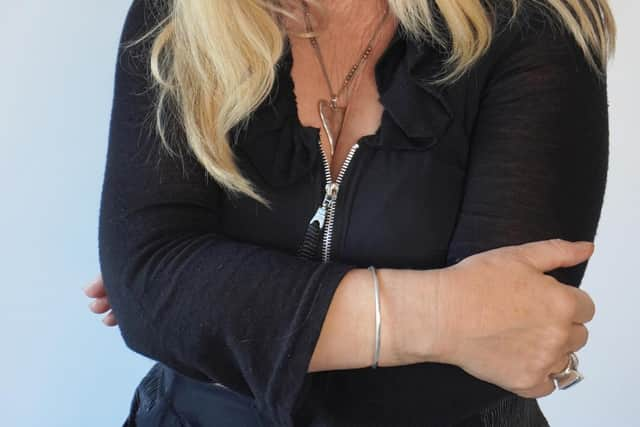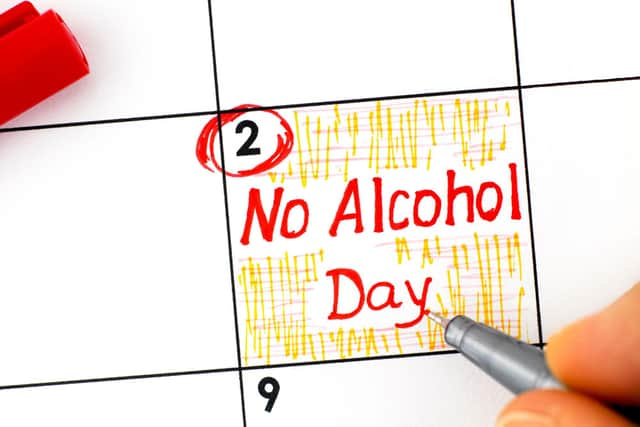Worried about your relationship with alcohol? 5 things to do now


Challenging people to give up booze for 31 days, Sober October aims to raise money for charity (the name was coined by Macmillan Cancer Support), but it’s also a good opportunity to take stock and examine if your drinking habits are impacting your health and happiness.
“Our research last year found that over 8.9 million adults are currently drinking above ‘safe’ levels each week,” says Steph Keenan, operations manager at With You (wearewithyou.org.uk), the charity that offers support with alcohol, drugs or mental health issues.
Advertisement
Hide AdAdvertisement
Hide Ad“It also found one in five of people are concerned about their own drinking or that of a partner, friend or family member.”


NHS guidelines recommend drinking no more than 14 units of alcohol a week, spread over three days or more, equating to six pints of beer or medium glasses of wine.
If you don’t vastly exceed this amount, but you’re worried about the severity of your hangovers or how much you crave a cocktail at the end of a long day, you could be a ‘grey area drinker’.
Janey Lee Grace, author of Happy Healthy Sober and founder of The Sober Club (thesoberclub.com) defines ‘grey area drinkers’ as: “People who have had times in the past where they have stopped, who are eating normally, holding down a job, have healthy relationships, but are drinking more than they want to.”
Advertisement
Hide AdAdvertisement
Hide AdAs Sober October begins, here are five expert-approved ways to reset your relationship with alcohol…


1. Consider the consequences
“Ask yourself the question, ‘Could my life be better physically and emotionally without alcohol?'” Lee Grace suggests. “People ought to be concerned if they are waking up at 3am with remorse, knowing they are drinking too much, if they are drinking secretly or are embarrassed to go back to the same off licence.”
2. Take a break
You don’t have to wait for Sober October or Dry January to embark on booze-free period, Lee Grace says: “Set yourself a challenge. At least 30 days and prep ahead.”


It could help to tell friends or family about your goal, ask your partner or best friend to join in, or post on social media to document your progress.
3. Identify your triggers
Advertisement
Hide AdAdvertisement
Hide AdIf, for example, you’re often tempted to pop into your local for a pint on a Friday night, you might want to change your after-work plans.
“Try to organise your life so that you’re less likely to get exposed to your triggers,” Keenan says. “You could walk a different route home or spend more time with family and friends who don’t drink.”
4. Drink-free days
Instead of quitting for a while, you might want to increase the number of ‘dry’ days you have each week.
5. Mind your measures
“When you drink at home, it’s easy to pour bigger drinks than you would have at a pub or bar,” says Keenan. “This makes it hard to cut down because you don’t know exactly how much you’ve had.” erterter